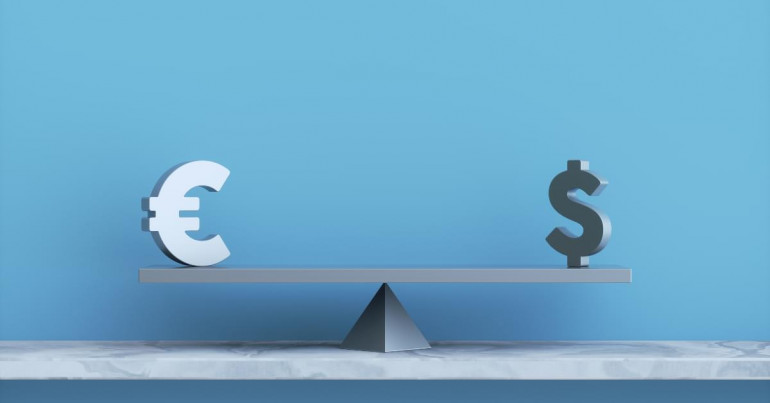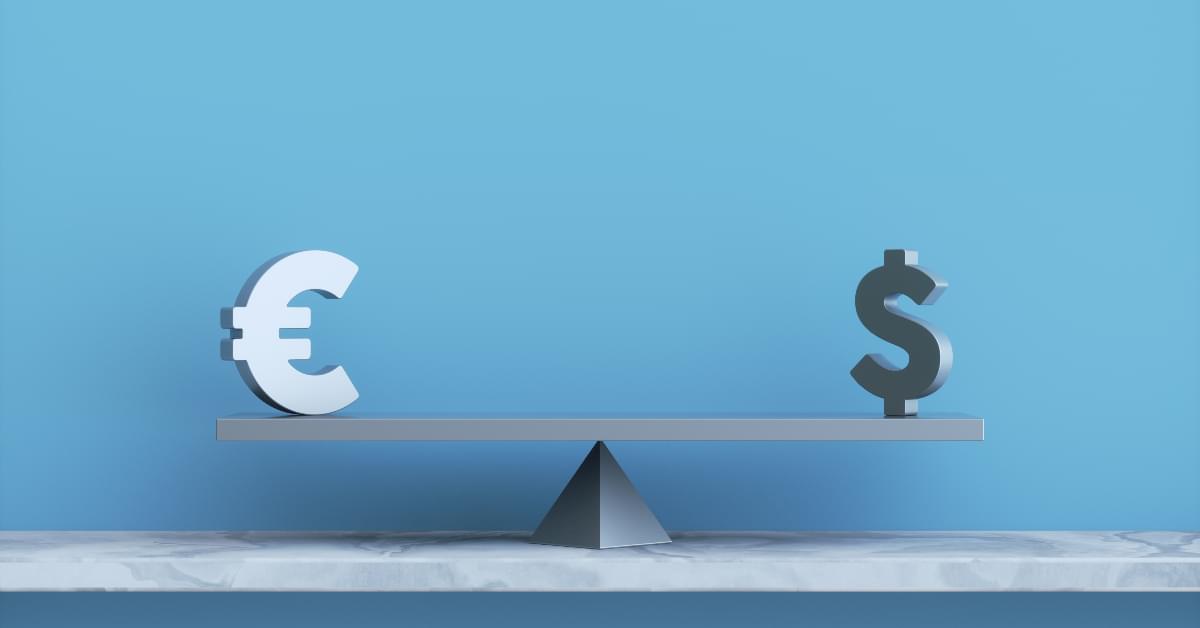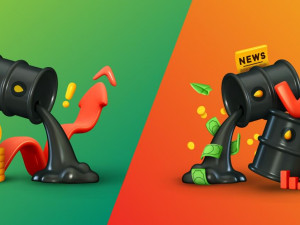
The exchange rate between the Euro and the US dollar recently reached parity for the first time in 20 years. Within this article, we will look at the causes and consequences of the EUR USD parity and how to protect your finances from currency fluctuations.
What has caused the Euro to devalue so rapidly?
Ukraine-Russia conflict
A major contributing factor to the decreasing value of the Euro is the Ukraine-Russia conflict. Russia’s invasion of Ukraine in late February 2022 triggered fears over Europe’s energy supply. Consequently, this hurt the region’s economies, ultimately pushing the Euro 12% lower against the US dollar so far this year.
The Ukraine-Russia conflict has impacted international trade, effectively postponing or rerouting trade routes within Europe. Additionally, Russian owned energy company Gazprom has recently cut gas supplies for Italy and Germany by 60%, causing concern within the EU. As a result, various European governments are looking for alternative suppliers, such as the US to deliver greater volumes of liquefied natural gas (LNG).
Raising inflation
Russia’s limited gas supplies being in high demand has caused its price to rise. Businesses and individuals, particularly in Europe have had to deal with rising prices for fuel and food. Inflation undoubtedly has contributed towards the euro-dollar parity and the devaluation of the euro. Inflation is a concern for both the Euro and US dollar with inflation in the US at its highest rate in four decades. As a result, the Fed has tightened its monetary policy with large interest-rate increases.
The Euro has been losing ground against the dollar since the start of the year, when it hovered near $1.13. This is way off its peak of nearly $1.60 in 2008.
Raising interest rates within the eurozone has also negatively affected businesses and consumers needing to borrow cash. The tightening of monetary policy has been in an attempt to combat inflation. However, this hasn’t kickstarted economies within Europe towards positive growth as of yet.
Lack of investor confidence
The Euro and US Dollar reached parity on the 6th July 2022. This occurred after the Euro abruptly lost value following the release of recent US inflation data. Nonetheless, the US Dollar has gained strength relative to many other currencies in the past year. This includes the Australian dollar, British pound and Japanese yen. The Fed’s aggressive stance in raising interest rates to combat inflation was the main factor behind the dollar’s rally early on.
In comparison, there are also legitimate concerns that the eurozone is heading into a recession. Recent recession fears in Europe in addition to concerns that Russia could cut vital energy supplies to the continent have been a major factor in decreasing investor confidence.
How has the strength of the US Dollar impacted EUR/USD?
A stronger US dollar indicates an increased demand for the currency, which is sometimes triggered by economic or political events. The continued Ukraine conflict affects investor risk appetite and where the safe-haven flow sees funds naturally flow to the USD. This has also been impacted by those who have less confidence in EUR. In this instance, the US economy has been far less affected by the war in Ukraine than Europe.
The US has not had to deal with energy price volatility, in the oil and gas markets, to the same extent. This is due to the US strategic oil reserves and use of alternative sources of energy, which has made the US more self-sufficient, while the Eurozone is still dependent on imported energy. This is another contributing factor to why the US dollar is appreciating relative to the euro. As a result, investors are choosing to move their money into safe haven currencies, such as the dollar. Ultimately this has a big negative impact on the euro but also a significant positive effect on the dollar.
Another key driver of USD strength is inflation, which is a global issue, since economies started to open up again after the Covid lockdowns. Nonetheless, where the Fed has committed to tackling inflation aggressively, raising interest rates more aggressively than the other G7 central banks, this has also helped increase the strength of the dollar. The Fed’s rate hikes have caused yields on U.S bonds to rise, which attracts international investors seeking higher yields than they can get elsewhere. This has continued to increase demand for the dollar, resulting in a stronger dollar and EUR/USD parity.

Who benefits from the Euro hitting US dollar parity?
Travelling to Europe has become a lot cheaper for Americans. For individuals or families who are looking to book a trip to Europe from the US, now would be a great time to visit. The parity of the Euro and US dollar has meant that Americans currently abroad in Europe are able to save cash due to the exchange rate.
American tourists will find cheaper hotels, airline tickets, and a generally lower cost of goods while travelling. Additionally, the Euro’s weakness against the US dollar helps European exporters, resulting in products being more competitive and boosting earnings.
Who is negatively affected by EUR/USD parity?
US corporations who are operating within Europe will likely see revenues decrease due to a less attractive exchange rate after earnings are returned to the US.
A concern for the US is that a stronger currency makes US produced products more expensive in international markets. This will increase the trade deficit whilst also reducing economic output.
In comparison, a weaker Euro can signal trouble for the European Central Bank, since it can lead to higher prices for imported goods. The ECB is already having to face a variety of concerns including raising inflation issues. They will now have to also deal with the significant devaluation of the euro.
How to protect your finances from currency fluctuations
Predicting currency fluctuations is impossible, as there are various internal and external factors at play. As a business or investor, safeguarding your investments and payments is essential. There are a number of ways to protect your finances from unforeseen market events or circumstances.
Manage your exposure to currency risk
Due to inflation and external factors, the Euro which has previously been preserved as a safe currency isn’t currently. With the current conflict in Ukraine, the US dollar has received further demand. This is due to investors continuing to turn to the dollar during economic tension and uncertainty. As the world’s reserve currency, the US Dollar is considered a safe storage of money.
Create financial budgets
A financial budget predicts how much revenue and costs will come and go from your business over a period of time, which is usually a year. Budgeting enables companies to look at costs within a business and where there can potentially be cutbacks. Furthermore, it will help to plan payments in advance that could be long term investments.
A financial budget also help to ensure you’re able to see revenues and costs within the company. Businesses who are meticulous with their bookkeeping and budgeting may be able to see financial opportunities for investing into a new market or industry as a result.
Work alongside a foreign exchange company
Working with a foreign exchange company can provide the flexibility and convenience to arrange payments in advance. There are many FX tools which you can use for paying overseas import invoices or company salaries.
A forward contract is an agreement between two parties to buy or sell a currency at the current exchange rate for a predetermined future date. Forward contracts can be customised by a specific amount and date in advance. As a result, rather than being susceptible to market movements, you can fix a rate at the current level for a transfer within the next 12 months.
Alternatively, a market order can enable you to choose a trigger exchange rate you want when making a payment. Once your desired exchange rate has been hit, your payment will be executed. This eliminates the need to continuously monitor the financial markets and currency fluctuations.
Omari Coates
Copywriter
Florence Couëdel
Editor
Paul Plewman
Editor



